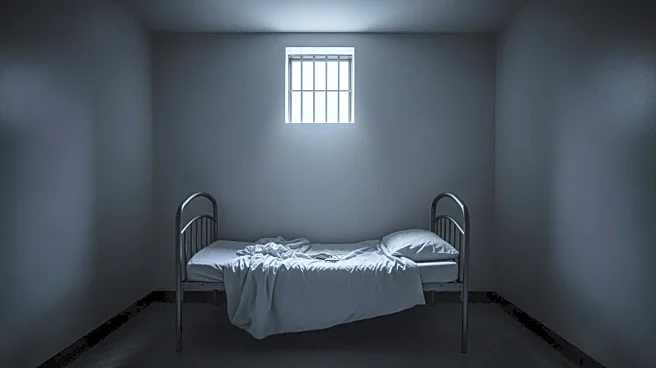What's Happening?
Ghislaine Maxwell's former cellmate, Jessica Watkins, has publicly stated that Maxwell is not suicidal, countering ongoing conspiracy theories surrounding the death of Jeffrey Epstein. Watkins, who was
incarcerated with Maxwell, tweeted that Maxwell is not suicidal and highlighted the lack of working cameras at FCI Tallahassee, where Maxwell is serving her 20-year sentence. Maxwell was convicted in 2021 for her role in Epstein's sex-trafficking ring. Despite her conviction, Maxwell has expressed willingness to testify before Congress regarding Epstein's client list. The Justice Department recently defended its prosecution of Maxwell, dismissing her claims of protection under Epstein's 2007 plea deal.
Why It's Important?
The statement from Maxwell's ex-cellmate adds a new dimension to the ongoing discussions about Epstein's death and Maxwell's imprisonment. It challenges the narrative that Maxwell might face a similar fate as Epstein, whose death was surrounded by controversy due to the lack of surveillance footage. This development is significant as it may influence public perception and legal proceedings related to Maxwell's case. The willingness of Maxwell to testify before Congress could potentially reveal more information about Epstein's network, impacting various stakeholders, including political figures and public institutions.
What's Next?
Maxwell's legal team has requested the U.S. Supreme Court to overturn her conviction, arguing that her prosecution should have been blocked by Epstein's 2007 plea deal. If the Supreme Court decides to hear the case, it could lead to significant legal ramifications. Additionally, Maxwell's offer to testify before Congress could lead to further investigations into Epstein's client list, potentially affecting high-profile individuals and institutions. The ongoing discourse around Epstein and Maxwell may continue to evolve, with potential implications for public policy and legal standards regarding sex trafficking cases.
Beyond the Headlines
The broader implications of Maxwell's case touch on ethical and legal dimensions, particularly concerning the accountability of individuals involved in sex trafficking networks. The case highlights the challenges in prosecuting high-profile figures and the complexities of plea deals in the justice system. It also raises questions about the effectiveness of prison surveillance and the protection of inmates, especially those involved in controversial cases. The societal impact of these discussions may influence future legislative actions and public awareness regarding sex trafficking and judicial transparency.









